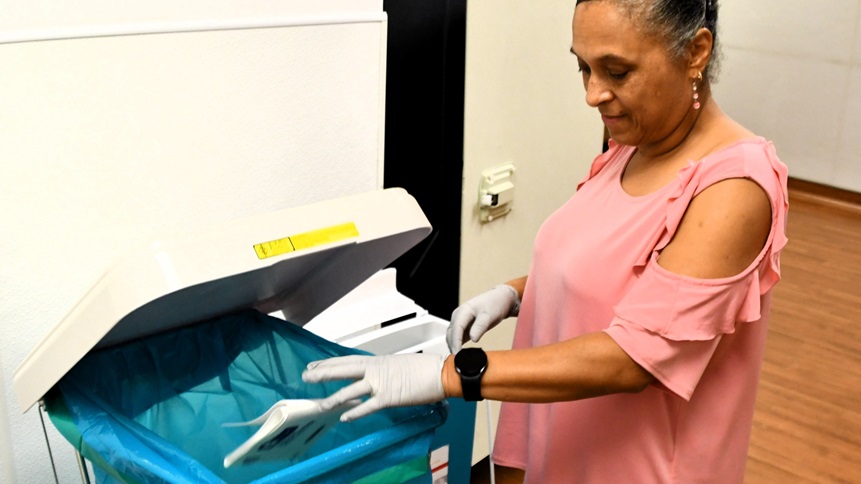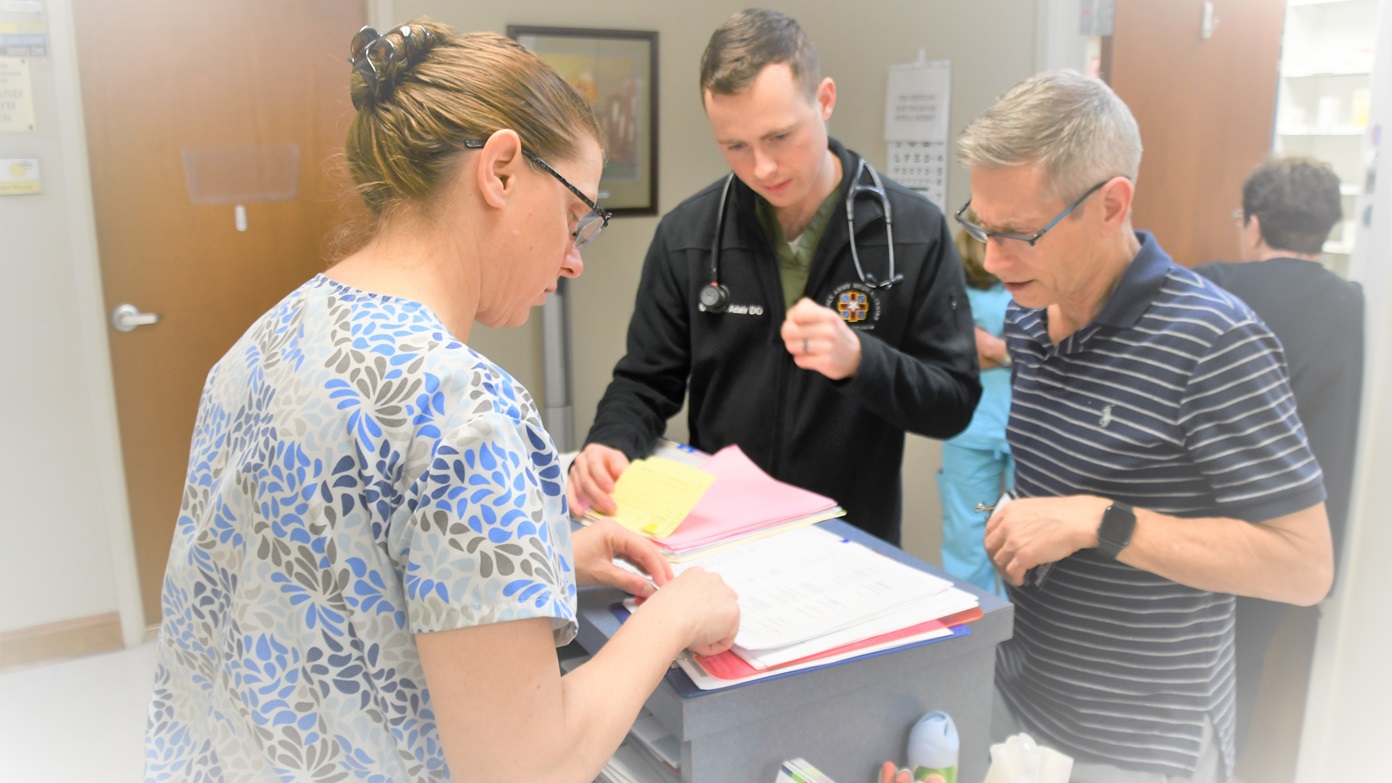April 23, 2025 | By Dan Grubb, Womack Army Medical Center
FORT BRAGG, N.C. – Sometimes being green is a good thing! Womack Army Medical Center proudly marks its seventh consecutive year as the leading facility in Single-Use Device reprocessing within the Department of Defense/Defense Health Agency and celebrates a decade of receiving the Stryker Sustainability Solutions Environmental Excellence Healthy Hospital Award.
Brandy Mitchell, Directorate of Logistics Clinical Analyst and SUD Reprocessing Manager at Womack, said the ‘green curve’ at Womack continues its trajectory upward. “Womack is honored to be recognized for our outstanding efforts in reprocessing single-use medical devices,” she noted. “This recognition highlights WAMC's commitment to sustainability and environmental stewardship, which has resulted in significant cost savings and waste reduction.”
In 2024, the facility achieved significant cost savings of $933,023 including $896,123 through collaboration with Stryker Sustainability and an additional $36,900 via Cardinal Health reprocessing—while diverting more than 51,000 devices, which translates to almost 15,000 pounds of waste from local landfills.
“The dedication of leadership at all levels across our Womack departments and clinics plays a vital role in the successful implementation and sustainability of the reprocessing program,” said Col. Stephanie Mont, Commander of Womack Army Medical Center. “Their continued emphasis enables our team to maximize our resources and reduce waste.”
Since the inception of the Reprocessing Program in 2008, Womack has saved $9 million and successfully reduced over 140,000 pounds of medical waste. The innovation of reprocessed medical devices has become a hallmark of healthcare efficiency, reducing costs and environmental impact. Reusing SUDs not only mitigates waste but also strengthens the supply chain by retaining resources locally, thereby reducing reliance on imported products and the materials required for their production.
Lt. Col. Cynthia Styner, Logistics Registered Nurse Liaison at Womack, said the operating rooms at Womack have a strong history of sustainability excellence. “Partnered with Stryker, numerous devices such as sequential compression device sleeves, pulse oximeter sensors, electrode leads and cables, trocars, harmonics, ligasures, tourniquet cuffs and ultrasonic scalpels are recycled and redesigned, aligning with the overall impact of cost savings and waste diverted from landfills,” she said.
Womack has even purchased a device used for soft tissue incisions when bleeding control and minimal thermal injury are desired. The instrument can be used as a substitute for electrosurgery, lasers, and steel scalpels. By the Operating Room purchasing one reprocessed handpiece device, it minimized carbon dioxide emissions by 889.29 kg. This reduction is comparable to the emissions from traveling over 1,000 miles, consuming 45 gallons of gasoline, charging 50,000 smartphones, or reducing a hospital stay by nine days in an acute care unit or three days in the ICU, as well as switching 15 incandescent bulbs to LED.
Through its partnership with the Products for the Planet program, Stryker Sustainability has facilitated the planting of numerous kelp pounds and 59 trees on behalf of Womack in environmentally critical areas, reflecting Womack’s commitment to sustainability. Womack encourages efforts in placing used products in designated reprocessing containers; your contributions are essential for protecting our oceans and forests. For information how you can help with being green, please visit https://www.epa.gov/sustainability/how-can-i-help-sustainability







